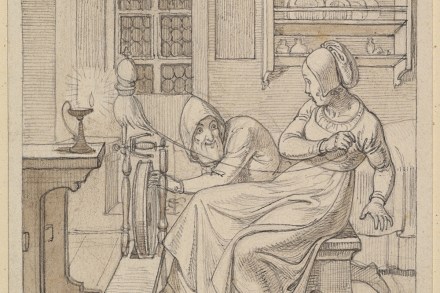Rumpelstiltskin retold: Alive in the Merciful Country, by A.L. Kennedy, reviewed
For Anna, wickedness istypified by the villain ofa fairy tale –Rumpelstiltskin The narrator of Alive in the Merciful Country is a woman weighed down by past trauma ‘like a bag full of broken kaleidoscopes’. Anna is a teacher steering her nine-year-old pupils through the 2020 lockdown while coping with life as the single mother of a troubled teenage boy, trying to rebuild trust after a shattering betrayal: ‘I didn’t ask to be in a spy scenario, or an action scenario, or a political thriller, but I recurringly have been.’ Damaged by life, she has learned to question misuse of power, personal and political: quis custodiet ipsos custodes indeed. Fans of




















